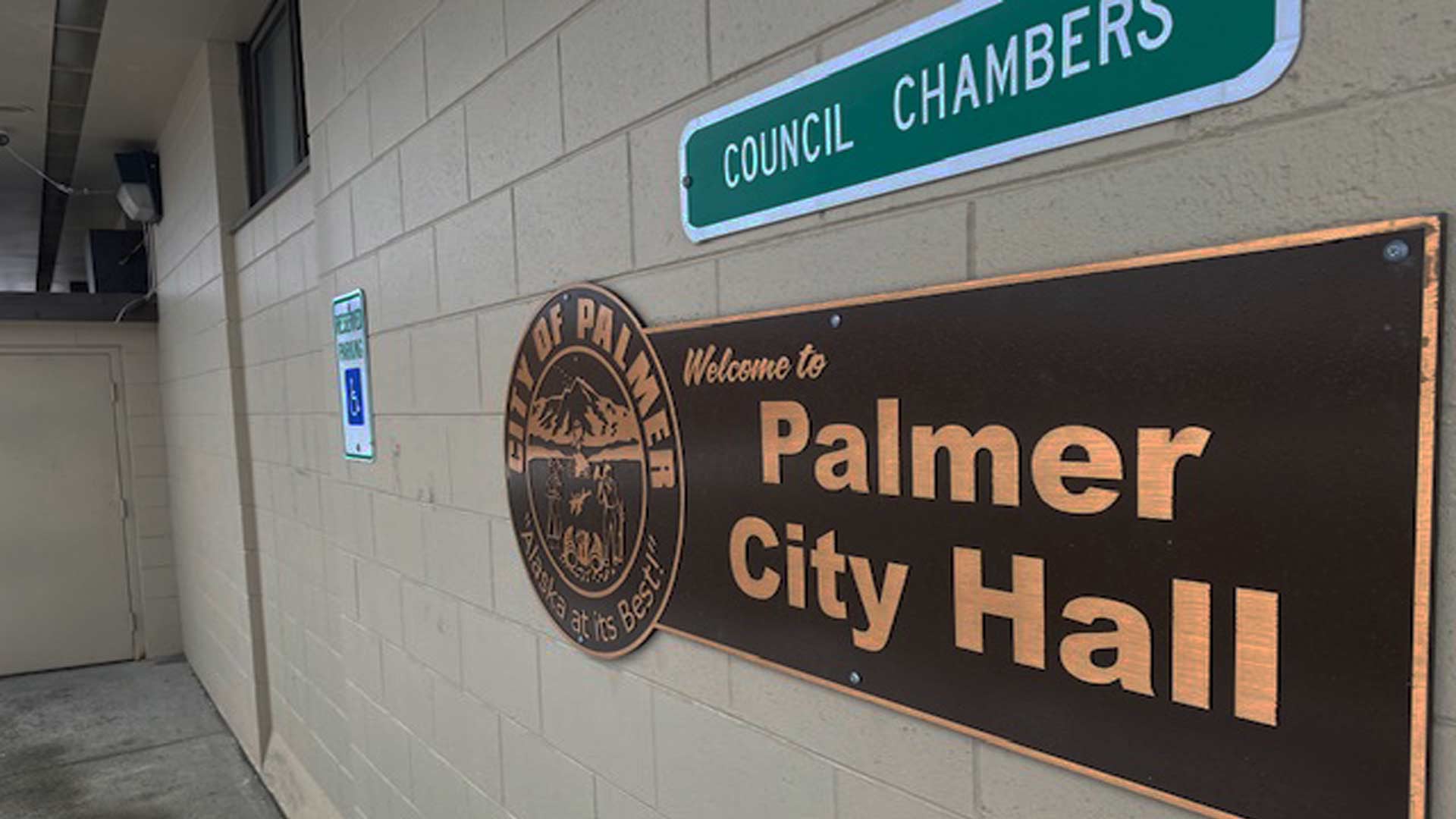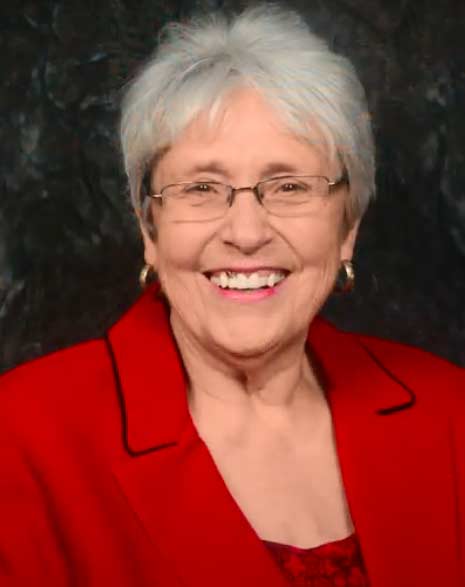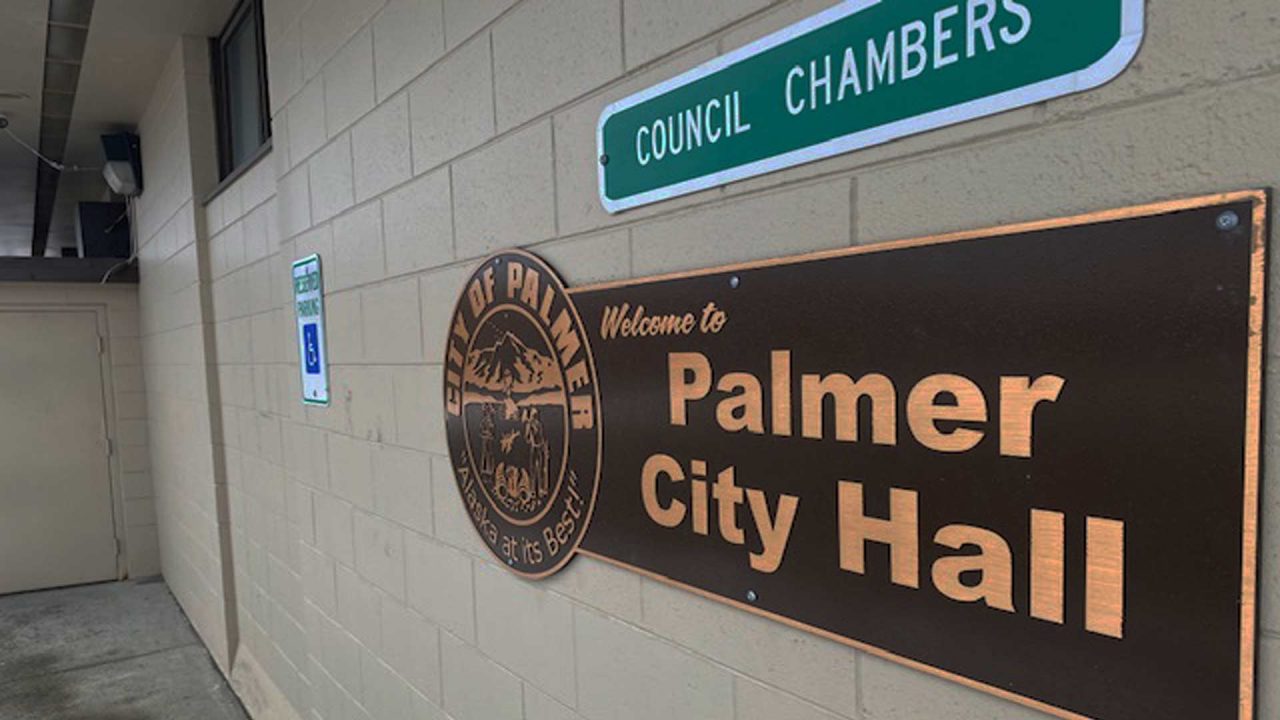
A sharply divided Palmer City Council voted June 8 to approve using a $30,000 state grant to incentivize people into getting COVID shots.

After lengthy debate, the council voted 4-3 to give a passthrough grant from the Alaska Dept. of Health & Social Services to the Greater Palmer Chamber of Commerce. This allows the Chamber to dole out monetary rewards known as “bingles,” which any resident who agrees to get vaccinated can then spend at local shops.
Palmer Mayor Edna DeVries objected, saying the plan discriminates against the majority of residents who don’t want a COVID shot.
“I think the percentage of people within the city of Palmer, as well as within the (Mat-Su) Borough that are resisting doing the vaccines is astonishingly high compared to those that have,” she said. “So, in that way, allowing this money to be given to the population that will do the vaccines, that is discriminatory.”
She also objected to the government enticing people into doing something they wouldn’t otherwise agree to.
“But you’re going to get, you know, $50 worth of bingles to spend in a local store,” she said.

Assemblyman Brian Daniels, who strongly favored the idea, shot back.
“You think money’s going to be the defining factor of whether or not you get a vaccine?” he said.
“Well, if money is not the defining factor, why are we doing this?” DeVries pressed.
Daniels said he “likes” the idea of giving bingles to the vaccinated, because it helps keep money in Palmer.
As a local business owner, Daniels could personally benefit from the bingles incentive scheme. Bingles are a local form of currency that area businesses use to keep money circulating in Palmer. Daniels co-owns 203 Kombucha, which is one 36 stores that accept bingles.
“Let’s support our city,” he said. “I think this is a really good cause and I think not to support it is a wrong choice. People have a free will to do whatever they want.”
Council Member Richard Best was among the minority block that opposed the plan. His concerns were similar to those of the mayor.
“There is a subset of our populous that won’t be able to participate because of medical concerns that they might have, and that is discriminatory,” Best said. “Because of a medical situation, they won’t be participating in getting the injection (and) they won’t be getting a bingle … so, yes, it is a discrimination of sorts.”
Despite the low vaccine rate, the state lists virus transmission rates in the Mat-Su as “low.”
Best also questioned whether a monetary-type incentive was even allowable according to the grant’s stipulations, which specifically prohibit actions considered “publicity and propaganda.” Dolling out bingles to influence people’s behavior looks a lot like publicity and propaganda, Best said.
City Attorney Michael Gatti admitted that the grant did not appear to be intended for incentivizing vaccinations, although he said that may still be allowed. Ultimately, he urged councilmembers to check back with the state to make sure bingles were permitted under the grant’s conditions.
City Manager John Moosey said he had already discussed the issue at length with officials in Health Commissioner Adam Crum’s office.
ALASKA WATCHMAN DIRECT TO YOUR INBOX
“This is coming from the governor’s office through Mr. Crum, in conversation, who is very concerned that people are not being encouraged to get a vaccine, which the governor’s office believes is very important,” Moosey said. “They also believe that local government and state government harping is not getting the message across because who listens to local government? So, they have been reaching out to local business and business opportunities to help spread the word and encourage that.”
Palmer Deputy Mayor Sabrena Combs wholeheartedly backed the idea, which she said is happening all over the state. She was joined by councilmembers Daniels, Julie Berberich and Jill Valerius in approving the grant use. Councilmembers Steve Carrington and Richard Best joined the mayor in opposition.
“There are many, many communities that are coming up with ways to promote this,” Combs said in support of offering rewards for COVID shots.
In general, COVID vaccinations have dropped off dramatically in Alaska over the past two months, despite continued campaigns from the state and local governments to push the experimental injection. The Mat-Su remains one of the least vaccinated areas of Alaska with nearly 70% of the population declining the shots. Despite the low vaccine rate, the state lists virus transmission rates in the Mat-Su as “low.”








27 Comments
I think Alaska got everyone who wants an experimental drug. The rest of Alaskans are going rough it out like an Independent.
First of all BRIAN looks more like a BRANDY,,, and 50 bucks to volunteer to kill myself? Ya that sounds like a great plan. Hey libtards in the valley,, please make sure you get both your death jabs for a bag of silver. The rest of us will watch you flop like fish from the convulsions that will eventually kill you in 3 years
A million dollars and I still wouldn’t take it. For real.
And who in their right mind actually wants to drink this “guy”‘s mushroom water?
Offer me a billion. Still wouldn’t do it.
How did that effeminate Beta Male Cuckhold even get elected?
What a bunch of garbage. I own a business and I’m going to vote to put money in my pocket. Isn’t there a word for this action? Isn’t it illegal. Yes it might be a good idea but the person’s business should be exempt. As for the people that can’t medically get the vaccine maybe put their names in a bucket and have a drawing for maybe x amount of people at $100 each. It’s not their fault they can’t take the vaccine. Let’s make it fair for all.
Thank you for listening!
The Nuremburg code will hang those that coerce taking the experimental poison.
People really need to start clicking…DYOR… there is a reason china upped the birthing of children to 3 per family……they have been depopulating us for a long time…. Why do they need to pay you to get the jab? Why are so many young vaxxed people with inflamed hearts or dead? Complicity is a chargeable offense. Do you understand the Nuremberg Code…….
Government using businesses to pedal their agendas? YouTube? Facebook? Google anyone? Such unAmerican practices to spread the socialist propaganda seems to be working on a national level. Why not bring it to Palmer?
$50 of phony money to take a Population Reduction shot? Sounds fair. I suggest all Demoncrats sign up Post Haste!
Never forget this Governors zeal to have all injected,,,,,
If I were, a store owner in Palmer.
I would refuse these bingles in my store.
Take a hike all you Afraid sheep.
Astounding waste of money. There is zero reason to incentivize the vaccine when already it is pretty evident from the numbers that enough people either have been vaccinated or have had the virus. The funds would be better spent being given to organizations that are able to help those hurt or affected by the pandemic.
!@#$%&&*(¤《☆£€¥{`~\|{€¥♧♡♤■●•°◇♧¡¡¡¡¡¡¡¿¿¿¿¿¿
My sentiments exactly!!! No brains, I guess and they must only watch MSM for their information…like soooo many people. Sad, but still people all over the world are putting two & two together…and it’s not 5, as they’d want us to believe. For political satire, watch Awaken with JP. He touches on everything and has a hilarious way to state truth.
Get this piece of human garbage out of Palmer… and out of the Valley entirely. Boycott leftist businesses and drive the liberals out of here. They have no place in the valley. If they want to die on that dumbass hill, they can go to the desolate shithole that is is MOA.
ITS ALL COMING TO LIGHT FOLKS THE GENOCIDAL MANIACS ARE PAYING YOU TO COMMIT SUICIDE…… THEY ARE DEMONS AND THOSE WHO LURE AND PROMPT YOU TO TAKE THIS SHIT ARE OF THE SATANIC WORLD,,,, YES THE WHEAT ARE BEING CHOKED OUT BY THE TARES… SEEK GOD NOW!!!!!HE WILL GIVE YOU DISCERNMENT ,,, DONT SEEK HIM AND THE WORLD WILL CONSUME YOUR FLESH AND SOUL…..
Right on the money JJ! There ‘s that word that most sheeple hav’nt a clue what it means let alone has any….DESERNMENT!!!
Do you mean “discernment”?
Every Walgreens, WalMart, Carrs and Fred Meyer is offering a no appointment needed, free shot. I’ve even seen “vaccine” buses parked on the streets in Anchorage.
I want to know who’s paying for all the incentives?
Are the pharmaceutical companies paying corporations or local govs or health departments to incentivize and push their products?
We need to get to the bottom of this.
Thanks for sharing the facts.
Remind me again; when can we vote these liberal, anti-Alaskan, freedom-hating, council members out of their seats?
Boycott Daniel’s kombucga business. Go into his store and let him know this is wrong.
Who the hell does the Palmer City Council think they are getting involved in our personal health care decisions???
My body, my choice- right liberals? Or does that only apply to killing unborn little babies.
Sic Semper Tyrannis!
I’d like a list of stores that are participating in this twisted scheme so that I can AVOID them.
And yes, Daniels, among other offenses, surely looks like he’s happy to line his own pockets with the grant money.
Very concerned for the Mat-Su, who are generally examples of conservative thought and freedom. Praying that this enticement will not work, that the Valley will resist dividing its citizens in this way.
There are 3 cmCity Council Members who are also business owners in the City of Palmer who stand to benefit from this action. Shouldn’t they have recused themselves from voting on this issue? Seems that they should have and this vote was illegal. Mayor DeVries, please address this at the next meeting. Thank you!
*Sorry for the typo from my fat thumbs. Correction: 3 City not 3 cmCity.